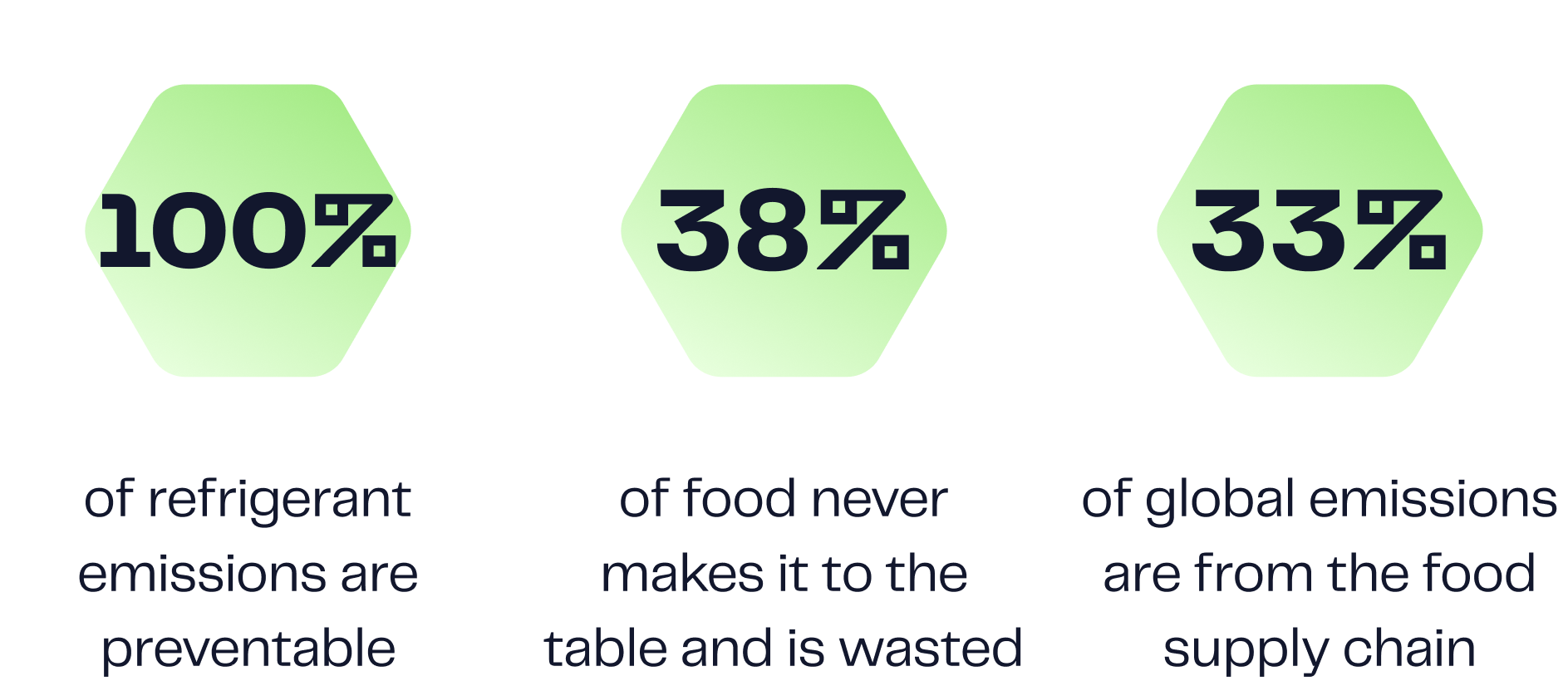Therm helps the food supply chain become more climate friendly by monetizing climate action. Therm develops and markets carbon credits to reward grocery retailers, food distributors, and dairy farmers for their climate-conscious decisions in refrigeration systems and food waste management.
The carbon footprint of the global food supply chain is a pressing concern in the fight against climate change. The food supply chain, which encompasses every stage from production to consumption, is responsible for approximately 26% of global greenhouse gas emissions. Understanding the sources and impacts of these emissions is crucial for developing strategies to reduce them and promote a more sustainable future.
The food supply chain significantly impacts the climate through various emissions sources:
- Land Use Change
- On-Farm Production
- Refrigeration
- Transport
- Packaging
- Waste Management
Each stage of the food supply chain offers different opportunities for decarbonization. Due to the complex nature of the food industry, decarbonization is often slow and expensive. Therm offers immediate, permanent, affordable solutions that help members of each stage quickly address emissions.
Therm brings together a rich industry background in HVAC/R, energy efficiency, carbon credits, facilities management, and cooling technology.









